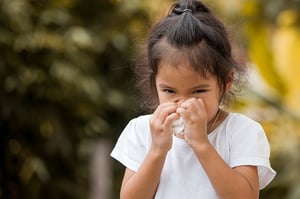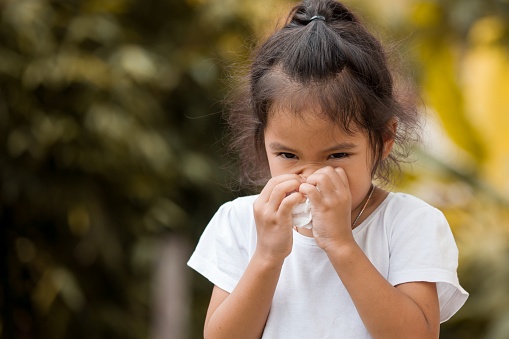If it seems as though your child gets sick at the start of every school year, know you’re not alone. The average child in the United States gets six to ten colds annually, according to WebMD.com, and colds serve as the biggest cause of missed school days and visits to the doctor for children—and schools can truly be breeding grounds for those germs. In fact, children gathering together is one of the main ways germs get passed around in a community.
Reasons why kids pick up germs in school include how they’re in close contact with one another throughout the day, plus how they stick fingers in their mouths and otherwise participate in germ-sharing activities. Finally, their immune systems aren’t as well developed as those of a typical adult, so they’re more susceptible to germs.

Fortunately, there are pretty simple ways to help reduce the spread of germs to help keep kids from getting sick. The first is to make sure your child gets all scheduled immunizations and that you talk to your doctor about whether everyone in your family should get an annual flu shot. (Effective 2010, the Centers for Disease Control and Prevention began recommending flu shots for everyone over the age of six months.)
Another core strategy to help prevent illness is to make sure your children know how to wash their hands effectively. Here, we wrote an entire blog post on hand-washing techniques.
A CNN.com article offers more tips to avoid what they call the “back to school plague,” including to make sure your children get enough rest. That’s because, when someone doesn’t get enough sleep, his or her immune system can’t fight off infection as well. And, if you’re struggling with getting your children on a quality sleep schedule, we’ve got expert tips.
Teach your children to keep a safe (healthy!) distance from people who cough or sneeze, and especially to avoid touching them. Also remind them to avoid touching their own eyes, nose and mouth, especially after being around people who cough or sneeze, because that’s how germs can infect them.
St. Louis Children’s Hospital shares more tips to help keep kids from getting sick, including to ensure your children are eating nutritious foods, including plenty of fruits and vegetables. It’s also important they drink enough water.
Exercise helps people, including children, deal with stress and anxiety better, and it also makes it easier to get a good night’s sleep. When your children get enough physical activity in a day, they typically have more energy and can focus better in school—and exercise is just good for people, overall, both physically and mentally.
Help your children effectively deal with stress, which may arise when starting a new grade or school, or when a test is coming up. Anxiety can lead to physical symptoms, including headaches, stomach aches and nausea; to help prevent this from happening to your children, we’ve focused on the subject of effectively addressing school anxiety in this blog post.
Finally, if your children do become sick, let them stay home to recuperate until they’ve been symptom-free for 24 hours. Here’s one way to determine whether your child should attend school or stay home again: if he or she has a temperature of at least 100.4 degrees in the evening, keep him or her home the next day. This will help your child to recover and also help prevent illness from spreading to classmates.
Here’s even more information about preventing the spread of germs.




